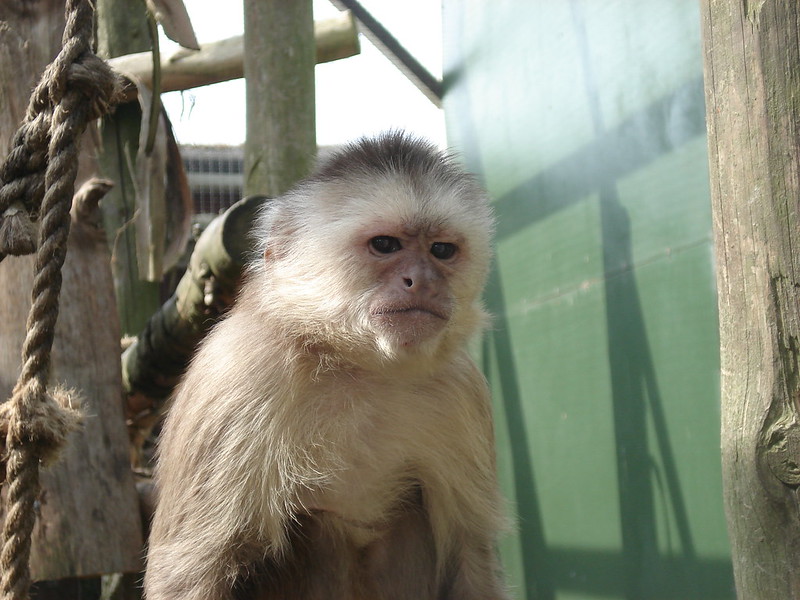Today we’re talking about the sunk-cost fallacy, when we keep at something even when it’s really not worth it anymore, just because we’ve already put so much time or effort into it.
It’s a part of human nature; it’s certainly part of mine.
But it is also a part of the nature of – this is the best part – video game playing monkeys.
A project led by Julia Watzek of Georgia State University gave a challenge to capuchin monkeys and rhesus macaques.
If they could use a joystick to move a cursor onto a moving target and keep it there when the time limit expired, they’d get a treat.
If they missed the time limit, they’d lose out on the reward, but the monkeys kept on trying anyway, sometimes five to seven times longer than they had to.
Watzek and her advisor, Sarah Brosnan, said the monkeys probably persisted for the same reasons humans do, even when there might be better reasons to move on.
One is uncertainty; the time limit for the monkeys’ video game was variable, and so maybe they thought, well, maybe this round it’ll be different.
The other is that we’re probably wired not to give up.
In many cases, persistence and determination are good qualities.
We just may not be as wired to know, as Kenny Rogers used to sing, when to hold ‘em, or when to fold ‘em.
Now for our first story on world records of 2021: the largest spam musubi!
That’s spam, rice and seaweed.
Dar and Cindy Place of Kimo’s Hawaiian Grill in Clarksville, Tennessee just made one that weighed 1,120 pounds.
It sure beats the Spam, eggs, sausage and Spam you find at other restaurants.
Monkeys, Like Humans, Persist At Tasks They’ve Already Invested In—Even When They Don’t Succeed (Georgia State University)
The world’s largest spam musubi is not from Hawaii (KHON)
No sunk costs with our Patreon backers!
Capuchin monkey photo by Marion O’Sullivan via Flickr/Creative Commons

